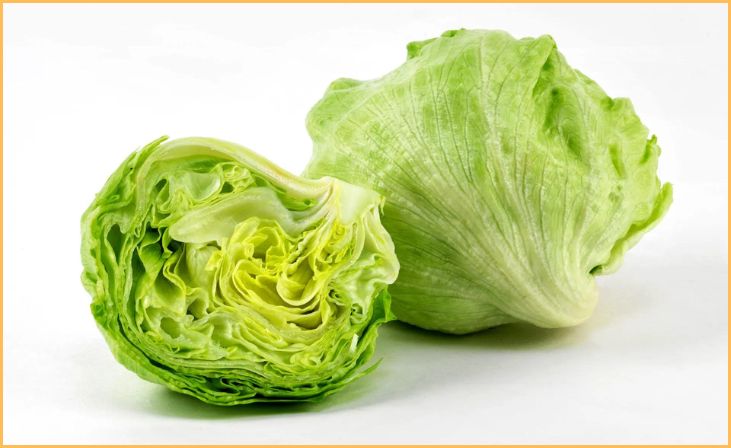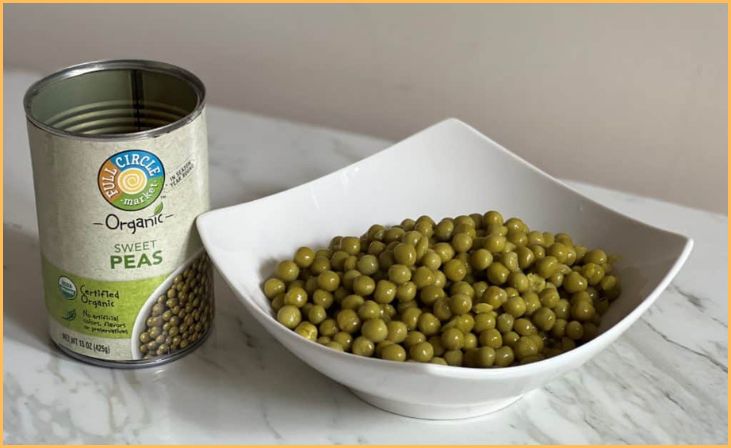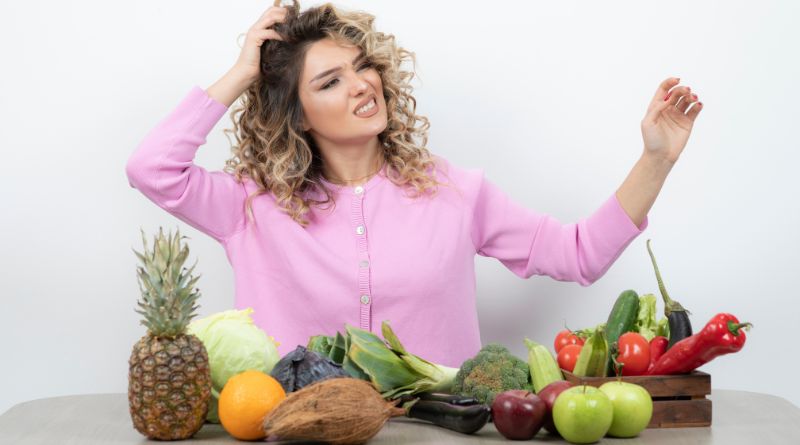When it comes to maintaining a healthy diet, vegetables play a crucial role in providing essential nutrients and promoting overall well-being. However, not all vegetables are created equal in terms of nutritional value. In this article, we will explore eight vegetables that aren’t as nutritious as you think. Let’s dive in and uncover the truth behind these seemingly healthy choices.
Vegetables are often celebrated for their diverse range of vitamins, minerals, and fiber that contribute to a healthy diet. However, some vegetables may fall short of delivering the nutritional benefits you expect. It’s important to be aware of these factors when making your dietary choices.
Top Vegetables That Aren’t As Nutritious As You Think
From hidden pitfalls to misconceptions, we explore why these vegetables may not be as wholesome as perceived. Understanding the nuances of their nutritional content can empower individuals to make informed choices and create a well-rounded and health-conscious diet.
1. Iceberg Lettuce

Iceberg lettuce, a popular choice for salads with its satisfying crunch, falls short in comparison to darker leafy greens like spinach or kale in terms of nutrient density. Despite offering hydration and some dietary fiber, it doesn’t match the rich levels of vitamins and minerals found in its darker counterparts. While iceberg lettuce contributes to the overall water content of your diet, its pale leaves signify a lower concentration of nutrients.
Choosing alternatives like spinach or kale ensures a more robust infusion of essential vitamins such as vitamin K and vitamin A, and minerals like iron and calcium. While iceberg lettuce can still be a refreshing and hydrating addition to meals, incorporating a variety of dark leafy greens allows for a more comprehensive nutritional profile, contributing to overall well-being and ensuring your salads pack a more substantial nutrient punch.
Quick Link: 9 Best High-Fiber Vegetables—Ranked!
2. Canned Corn
While canned corn may offer convenience, it’s essential to be aware of potential drawbacks. The convenience of canned corn can come at a cost, as it may contain added sugars, which can compromise its overall health benefits. Additionally, the canning process itself can lead to nutrient loss, diminishing the nutritional content compared to fresh or frozen alternatives. Opting for fresh or frozen corn ensures a higher retention of essential nutrients, providing a more wholesome addition to your meals.
By being mindful of the potential pitfalls of canned corn, individuals can make informed choices that align with their nutritional goals. Exploring alternative preparation methods, such as steaming or boiling fresh or frozen corn, allows for a nutrient-rich addition to your diet while maintaining the convenience factor. Choosing whole, unprocessed options ensures that you reap the full nutritional benefits of this versatile vegetable, making it a valuable component of a health-conscious diet.
3. White Potatoes
White potatoes, a dietary staple for many, are notable for their carbohydrate content but fall short in comparison to sweet potatoes when it comes to vitamins and fiber. Unlike their orange-hued counterparts, white potatoes lack the vibrant nutrient profile found in sweet potatoes. While white potatoes offer a reliable source of carbohydrates, they may not contribute significantly to your overall nutrient intake.
Sweet potatoes, with their rich color, provide essential vitamins like vitamin A and dietary fiber, enhancing their nutritional value. Considering the variety of potatoes available, individuals seeking a more nutrient-dense option may opt for sweet potatoes to bolster their overall diet with added vitamins and fiber, supporting a more comprehensive approach to nutrition.
4. Canned Peas

While canned peas offer convenience, the processing and canning procedures they undergo may lead to some loss of nutritional value. Opting for fresh or frozen peas provides a more nutrient-rich alternative, preserving their vitamins and minerals more effectively. The canning process, involving heat and extended storage, can impact the nutritional content of peas, potentially diminishing their overall health benefits. Fresh or frozen peas, on the other hand, undergo minimal processing, maintaining their nutrient profile more successfully.
Making a conscious choice in favor of fresh or frozen peas allows individuals to maximize their intake of essential vitamins and minerals, contributing to a well-rounded and nutritious diet. By prioritizing less processed options, you ensure that the vibrant green goodness of peas remains a valuable addition to your meals, supporting overall health and wellness.
5. Canned Tomatoes
The canning process employed for tomatoes, while ensuring convenience, may lead to a reduction in certain essential nutrients like vitamin C and antioxidants. Opting for fresh or jarred tomatoes emerges as a superior choice, preserving the nutritional integrity of these valuable components more effectively. The heat and extended storage involved in canning tomatoes can contribute to nutrient loss, impacting the overall health benefits they provide. Fresh tomatoes, with their vibrant colors, or jarred options that involve minimal processing, are better alternatives for those seeking to maximize their intake of vitamin C and antioxidants.
By choosing less processed forms of tomatoes, individuals can incorporate these nutrient-rich additions into their diet, supporting immune function and overall well-being. Making a conscious effort to select tomatoes in their freshest or least processed states ensures a flavorful and nutrient-packed addition to meals, promoting a health-conscious approach to nutrition.
6. Canned Carrots
While canned carrots offer convenience, the canning process they undergo may result in a reduction of certain nutrients found in their fresh counterparts. Opting for fresh carrots ensures a more comprehensive intake of the full range of vitamins and minerals they naturally provide. The heat and extended storage during canning can contribute to nutrient loss, impacting the overall nutritional value of the carrots. Fresh carrots, with their vibrant color and crisp texture, stand out as a superior choice for those seeking to maximize their nutritional benefits.
Choosing less processed forms of carrots aligns with a health-conscious approach, allowing individuals to enjoy the full spectrum of vitamins and minerals that contribute to overall well-being. By incorporating fresh carrots into your diet, you not only savor their natural flavor and texture but also make a conscious choice for nutrient-rich, wholesome nutrition.
Also Read: 10 Vegetables That Are Secretly Making You Gain Weight
7. Store-Bought Veggie Chips
Store-bought veggie chips, marketed as a healthier option compared to traditional potato chips, might not live up to their health-conscious image. Despite their vegetable origin, these chips often include added salt and unhealthy oils in the manufacturing process. These additives, while enhancing flavor, can significantly diminish the nutritional benefits derived from real vegetables. High salt content may contribute to increased sodium intake, potentially affecting cardiovascular health. Additionally, the use of unhealthy oils, such as partially hydrogenated oils, can introduce trans fats, negatively impacting cholesterol levels.
Opting for homemade veggie chips or consuming real vegetables in their natural state offers a more nutritious alternative, allowing individuals to enjoy the genuine health benefits of vegetables without the potential drawbacks associated with processed alternatives. By scrutinizing labels and making informed choices, individuals can maintain a health-conscious approach to snacking while reaping the nutritional rewards of authentic vegetables.
8. Pickles

Cucumbers, with their hydrating and healthful properties, are a nutritious choice in their natural state. However, when transformed into pickles, caution is warranted. The pickling process, involving the use of salt and brine, can significantly elevate the sodium content of pickles, potentially contributing to increased sodium intake. While cucumbers are inherently rich in vitamins and minerals, some of these nutrients may be lost during the pickling process. Consuming pickles sparingly and being mindful of their sodium content is essential for those looking to maintain a balanced diet.
Opting for fresh cucumbers or homemade pickles with reduced salt can offer a healthier alternative, allowing individuals to enjoy the crispness of cucumbers without compromising their nutritional value. By making informed choices, individuals can strike a balance between the satisfying tang of pickles and the health-conscious approach of incorporating nutrient-rich vegetables into their diet.
It’s important to approach your vegetable choices with a well-informed perspective. While some vegetables like iceberg lettuce, canned corn, and white potatoes may not provide the same level of nutrients as their counterparts, there are plenty of other nutritious options available. Incorporating a variety of colorful and nutrient-dense vegetables into your diet can help ensure that you’re getting the most out of your meals.
Final Words
As we conclude our exploration into vegetables that might not be as nutritious as commonly believed, it becomes evident that scrutinizing nutritional claims is crucial for making informed dietary choices. While these vegetables may still offer some health benefits, acknowledging their limitations allows for a more nuanced approach to incorporating them into a balanced diet. The key lies in variety and moderation, ensuring that a diverse range of nutrient-rich vegetables takes center stage in your meals. By staying informed and embracing a mindful approach to vegetable consumption, individuals can optimize their nutritional intake and foster a healthier lifestyle.
FAQs
Various factors, such as cooking methods, portion sizes, and individual dietary needs, can influence the perceived nutritional value of vegetables. Understanding these nuances helps in making informed dietary choices.
Absolutely. While some vegetables may not be nutritional powerhouses, they can still contribute essential vitamins and minerals to your diet. Balancing your vegetable intake with a variety of nutrient-rich options ensures a well-rounded approach to nutrition.
Prioritize a diverse selection of colorful vegetables and consider varying your cooking methods. Being aware of potential nutritional pitfalls can guide you toward making healthier choices within your diet.
No, these vegetables still offer some nutritional benefits. However, the goal is to highlight that their overall nutritional content might not be as robust as commonly believed, encouraging individuals to diversify their vegetable choices for a more comprehensive nutrient intake.







